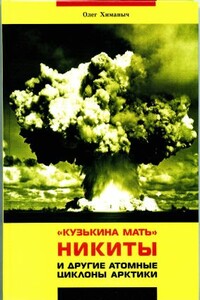The Run of His Life: The People v. O. J. Simpson - [3]
“I’ve asked you all here today because you all know how to try a case,” Shapiro said, “and I’m not afraid to ask for your help.”
But Shapiro actually asked few questions, and though he was pleased to have collected all these fine lawyers together, he didn’t listen much to what they had to say. Shapiro’s confidence was astonishing: He had the answer for O.J. Simpson. His client, he vowed, would go to trial and be acquitted. The strategy was set. Shapiro was caught up short only once. Michael Baden, the eminent medical examiner whom Shapiro had retained as an expert in the case, mentioned at the meeting that the autopsy results on the victims showed the possibility that more than one person had killed Nicole and Ron. Robert Shapiro paused to consider the implications. “So,” he asked the group, “that means O.J. and who else did it?”
This remark, too, drew stunned silence, and the meeting soon broke up. Shapiro took several of the participants out to dinner at Nicky Blair’s, a venerable (and now defunct) Hollywood hangout. A few hardy souls concluded the evening with drinks at the Beverly Hills estate of Shapiro’s friend and former client Robert Evans, the movie producer whom Shapiro had steered clear of formal charges in the infamous Cotton Club murders of 1983.
Among the guests at Shapiro’s meeting most pleased to have been invited was Marshall Grossman. Though he had enjoyed considerable success in the world of civil litigation, Grossman had never tried a criminal case, and the glamour and excitement of the Simpson case appealed to him. However, as Grossman later pondered what he had heard at the meeting, he hesitated. Grossman had tried cases for high stakes before, but he realized that this case, as Shapiro planned to defend it, would become something much bigger than the trial of a single defendant. If Shapiro had his way, it would come to involve (and possibly consume) the whole city of Los Angeles. Ultimately, Grossman decided this kind of public spectacle would not be for him.
The notion that Grossman might play a part in the Simpson case had generated excitement at his law firm, and he felt he owed his colleagues an explanation for his decision. At 11:12 A.M. on July 6, 1994, he sent an E-mail message around his firm that said, “I am sending a letter to the lead trial lawyer in the case this morning informing him of my decision” not to join the defense effort. The Simpson case, Grossman went on, “carries with it a high risk of racial divisiveness for our community, a situation which I don’t wish to contribute to and would rather reserve the opportunity for a healing role if need be.”
Johnnie L. (just “L”) Cochran, Jr., loved appearing on Nightline-as well as the Today show, the CBS Evening News, and the NBC Nightly News. In the days immediately after the murders in Brentwood, he did them all, and the programs’ producers were happy to have him, too. Cochran was a poised, accomplished, telegenic African-American lawyer, the answer to a network booker’s dreams. Within a week of the murders, the Today show even made him a paid consultant.
As it happened, on the evening of June 17, 1994-the day Al Cowlings led the nation on the low-speed chase down the Los Angeles freeways-Cochran was booked to analyze the events of the day on Nightline. Though television viewers never knew it, Cochran’s position in the case was considerably more complicated than that of the other legal experts who were surfacing in the media to analyze the case. Cochran had personal knowledge of what was going on behind the scenes. He was a friend of O.J. Simpson’s-not, in normal circumstances, an intimate confidant, but certainly a long-term acquaintance. Since the day of the murders, Simpson had been on the phone with Cochran talking about his plight and asking the attorney to join in his defense efforts. On the air, Cochran was cautious and only mildly pro-defense. His comment that evening on Nightline was typical of what he was saying on all the programs: “I think that the important thing for all Americans to understand is that this is a tragic, tragic case, but at this point he’s still presumed to be innocent.”
Off camera, though, Cochran, like Shapiro, could afford to be more blunt. For example, during a break in the broadcast of Nightline on June 17 in ABC’s studios in Los Angeles, Cochran sized up the situation very differently from the way he did for the program’s viewers. “O.J. is in massive denial,” Cochran told a friend. “He obviously did it. He should do a diminished-capacity plea and he might have a chance to get out in a reasonable amount of time.” When, the following week, Cochran traveled to Burbank for his early-morning duty to the Today show, he expressed the same sentiments-likewise to friends, off camera.
But in the days to come, as Cochran continued to listen to Simpson’s entreaties, the lawyer learned that the defendant had no interest in pleading guilty. He wanted to go to trial and win-and he wanted Cochran to represent him. Cochran was torn. He enjoyed the broadcasting work; it was easy, flattering, low-stress, and, at several hundred dollars per appearance on

В книге рассказывается история главного героя, который сталкивается с различными проблемами и препятствиями на протяжении всего своего путешествия. По пути он встречает множество второстепенных персонажей, которые играют важные роли в истории. Благодаря опыту главного героя книга исследует такие темы, как любовь, потеря, надежда и стойкость. По мере того, как главный герой преодолевает свои трудности, он усваивает ценные уроки жизни и растет как личность.

Стихи Вероники Долиной давно знакомы любителям поэзии, поклонникам авторской песни. Они просты и лукавы, одновременно безыскусны и полны метафор.Впервые читателю предлагается столь большое собрание стихов В. Долиной «из жизни»; многое публикуется впервые; рассказ «Тихий зайчик», фото из архива и развернутые интервью добавляют немало интересного к образу известного автора.

Автор книги — полярный летчик, Герой Советского Союза И. И. Черевичный рассказывает о людях авиационного отряда Первой советской антарктической экспедиции, об их дружбе, окрепшей в борьбе с суровой природой. Со страниц книги встают живые образы наших замечательных летчиков, механиков, радистов — тех, кто самоотверженным трудом умножает славу нашей авиации. Несмотря на трудности быта и работы на не исследованном еще шестом континенте, эти люди всегда бодры, всегда готовы пошутить и посмеяться.Книга проникнута чувством высокого патриотизма.

Аннотация издательства: Книга «В черной пасти фиорда» — это рассказ и раздумья командира подводной лодки «Л-20» Краснознаменного Северного флота о боевых походах подводного корабля, его торпедных атаках и постановке мин, о действиях экипажа в трудных ситуациях. Автор воспоминаний — капитан 1 ранга в отставке Виктор Федорович Тамман — с душевной теплотой повествует о мужестве, стойкости и героизме подводников.

Четвертая книга морского историка, члена Союза писателей России Олега Химаныча рассказывает о создании в Арктике Новоземельского полигона, где испытывалось первое советское атомное оружие. Автор исследует события с начала 50-х XX века, когда США и Советский Союз были ввергнуты в гонку ядерных вооружений, и отслеживает их до 1963 года, когда вступил в силу запрет на испытания атомного оружия на земле, в воздухе, под водой и в космосе.В основе повествования — исторические документы, которые подкрепляются свидетельствами непосредственных участников испытаний и очевидцев.В книге сделан акцент на те моменты, которые прежде по разным причинам широко не освещались в литературе и периодической печати.